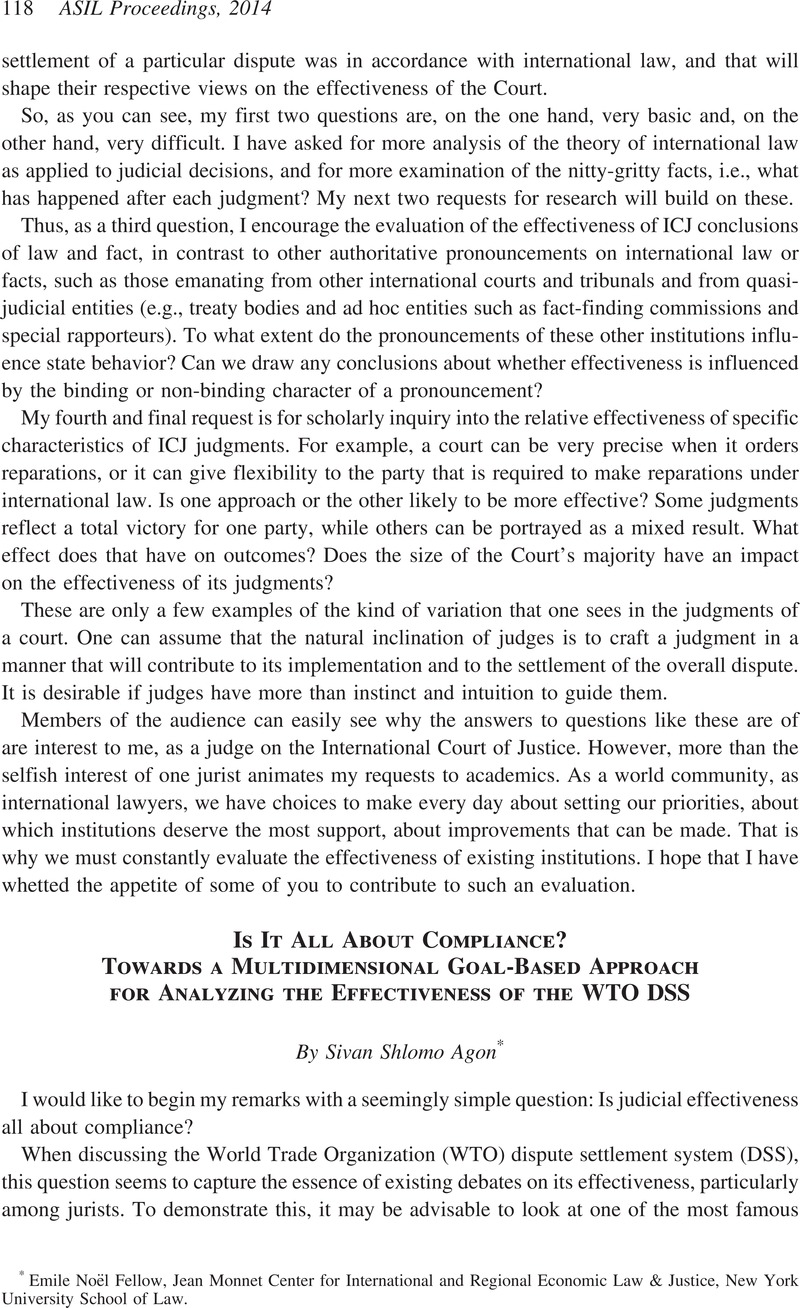Published online by Cambridge University Press: 20 January 2017

1 Appellate Body Report, European Communities—Regime for the Importation, Sale and Distribution of Bananas, WT/DS27/AB/R (Sept. 9, 1997).
2 See WTO, Historic Signing Ends 20 Years of EU-Latin American Banana Disputes (Nov. 8, 2012), http://www.wto.org/english/news_e/news12_e/disp_08nov12_e.htm.
3 This traditional and dominant model in the social science literature on organizational effectiveness, known as the “goal-based” or the “rational-system” approach, relies on the vision of the organization as a rational set of arrangements oriented toward the achievement of goals. This model focuses on the extent to which an organization reaches its goals as the key criterion of effectiveness, that is, effectiveness as measured in terms of accomplishments of outcomes. See, e.g., Scott, Richard W., Organizations: Rational, Natural, and Open Systems 351–352 (5th ed. 2003)Google Scholar; Tolbert, Pamela S. & Hall, Richard H., Organizations: Structures, Processes, and Outcomes 186–187, 190 (10th ed. 2009)Google Scholar; Etzioni, Amitai, Two Approaches to Organizational Analysis: A Critique and Suggestion, 5 Admin. Sci. Q. 257 (1960)CrossRefGoogle Scholar.
4 Sivan Shlomo Agon, Is it All about Compliance: Towards a Multidimensional Goal-Based Approach for Analysing the Effectiveness of the WTO DSS (Dec. 2013) (unpublished Ph.D. dissertation, the Hebrew University of Jerusalem) (on file with author). The dissertation forms part of a larger research project funded by the European Research Council, called the “Effectiveness of International Adjudication Project” (see http://www.effective-intl-adjudication.org/). Following the rational-system approach, the Effectiveness Project conceptualizes the effectiveness of international adjudicative systems as the extent to which they attain their goals. See Yuval Shany, Assessing the Effectiveness of International Courts: A Goal-Based Approach (2014).
5 Interview with state official (July 9, 2012).
6 Interview with WTO legal officer (Mar. 16, 2012) (alteration added).